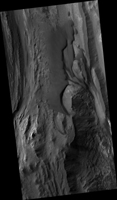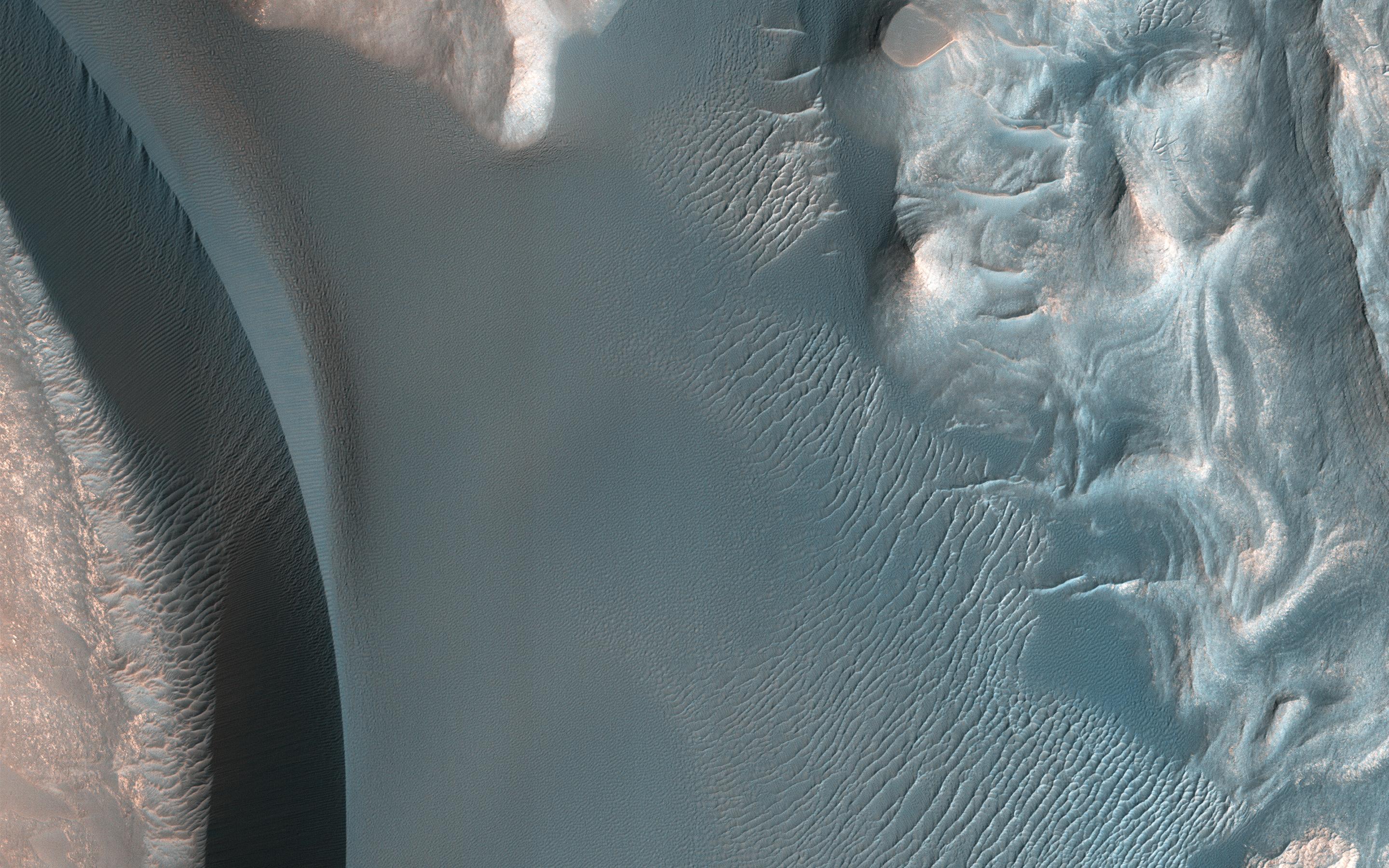Summit Dunes and Their Sand Sources
Caption:

Map Projected Browse Image
Click on image for larger version
The ultimate origin of the sediment that forms Martian dunes has long been debated. While sand dunes on Earth are primarily sourced by quartz-bearing components of granitic continental crust, it's often suggested that sand on Mars derives from eroded volcanic flows or sedimentary deposits, but exact sources are often vague.
This image reveals a unique situation where this small dune field occurs along the summit of the large 1-mile-tall mound
near the center of Juventae Chasma
. The layered mound slopes are far too steep for dunes to climb, and bedform sand is unlikely to come from purely airborne material. Instead, the mound's summit displays several dark-toned, mantled deposits that are adjacent to the dunes and appear to be
eroding into fans of sandy material
.
Along with local HiRISE images,
spectral data from other instruments on MRO
have confirmed such units are likely to be the sand source for these mound summit dunes and reveal how landscape evolution on Mars might occur.
The map is projected here at a scale of 25 centimeters (9.8 inches) per pixel. [The original image scale is 27.8 centimeters (10.9 inches) per pixel (with 1 x 1 binning); objects on the order of 83 centimeters (32.7 inches) across are resolved.] North is up.
Background Info:
The University of Arizona, Tucson, operates HiRISE, which was built by Ball Aerospace & Technologies Corp., Boulder, Colorado. NASA's Jet Propulsion Laboratory, a division of Caltech in Pasadena, California, manages the Mars Reconnaissance Orbiter Project for NASA's Science Mission Directorate, Washington.
Cataloging Keywords:
| Name |
Value |
Additional Values |
| Target |
Mars |
|
| System |
|
|
| Target Type |
Planet |
|
| Mission |
Mars Reconnaissance Orbiter (MRO) |
|
| Instrument Host |
Mars Reconnaissance Orbiter |
|
| Host Type |
Orbiter |
|
| Instrument |
High Resolution Imaging Science Experiment (HiRISE) |
|
| Detector |
|
|
| Extra Keywords |
Color, Dune, Map, Volcano |
| Acquisition Date |
|
| Release Date |
2018-10-01 |
| Date in Caption |
|
|
| Image Credit |
NASA/JPL-Caltech/Univ. of Arizona |
| Source |
photojournal.jpl.nasa.gov/catalog/PIA22785 |
| Identifier |
PIA22785 |

 Planetary Data System
Planetary Data System

